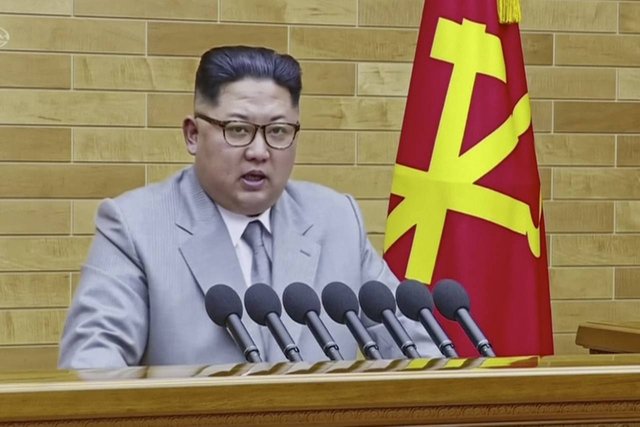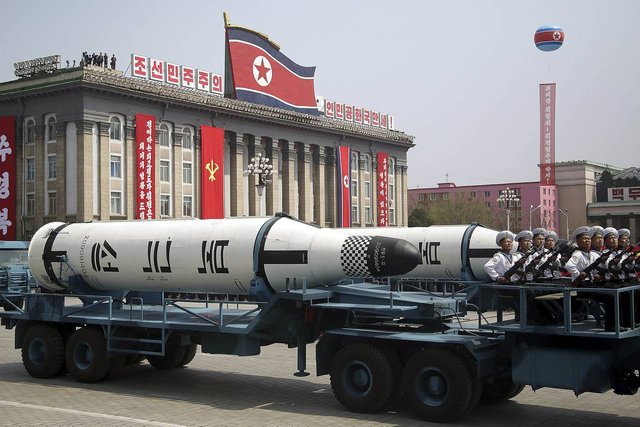
SEOUL—North Korea’s armed forces have scaled back their annual winter military exercises this year, U.S. officials said, a development they believe reflects growing pressure from international sanctions on the isolated nation’s economy and its military preparedness.
The North Korean maneuvers, which typically run from December through March, were slow in getting started and are less extensive than usual, according to American officials familiar with intelligence reports and experts outside the government.
One possibility is that restrictions on shipments of oil and refined petroleum products to North Korea imposed by the United Nations have led the country, which has one of the world’s largest standing armies, to conserve fuel by cutting back on ground and air training exercises.
“Where this will have an effect is on ground-force readiness,” said Joseph S. Bermudez Jr. , a military analyst for 38 North, a website on North Korean affairs run by Johns Hopkins University’s U.S.-Korea Institute. “Military units have to train to maintain their proficiency.”
Still, military analysts inside and outside the government cautioned that the development hasn’t yet led to a dramatic decrease in the North’s military capabilities. There also appear to be no signs that sanctions are limiting North Korea’s push to strengthen its nuclear and missile arsenal.
In a New Year address, North Korean leader Kim Jong Un called on his generals to “mass-produce nuclear warheads and ballistic missiles.” North Korean officials have insisted that recent talks with Seoul center on Pyongyang’s participation in the Winter Olympics in South Korea, rather than on its nuclear program.
The reduction in the North Korean winter exercises comes amid other signs of strain on the country’s military.
“We are seeing defections happening in areas where we don’t generally see them, for example crossing the DMZ,” said Gen. Vincent K. Brooks, the top U.S. commander in South Korea, referring to the demilitarized zone that divides the Korean peninsula.
“We’re seeing some increase in executions, mostly against political officers who are in military units, for corruption,” the general said. He said the moves “are really about trying to clamp down as much as possible on something that might be deteriorating and keeping it from deteriorating too quickly.”
Responding to North Korea’s nuclear and missile tests, the U.N. Security Council has passed a series of resolutions that ban the export of North Korean coal—an important source of revenue for Pyongyang—and severely limit vital petroleum imports.
Senior South Korean officials and foreign diplomats in Pyongyang say they have yet to see indicators of instability in everyday life inside the country, but point to signs of stress. North Korean laborers are being sent home in large numbers from overseas work postings, for example, crimping the country’s supply of hard currency and leading to fluctuations in the exchange rate, they say.
In addition, propaganda directed at the North Korean public also points to anxiety about the likely impact of sanctions. Mr. Kim in his New Year speech this month acknowledged that the economy faced “unprecedented impediments” in 2017.
The squeeze on oil, in particular, appears to have grown extreme enough for the North to try to evade sanctions by bringing in oil through ship-to-ship transfers on the high seas.
–– ADVERTISEMENT ––
North Korea’s armed forces have long had to contend with tight budgets and antiquated hardware. A declassified 2015 report by the U.S. Army on North Korea’s military noted that “the amount of time spent on larger exercises pales in comparison to most Western militaries.”
Still, North Korea retains significant “asymmetric” capabilities that help offset deficiencies in its army and air force. These include chemical weapons, artillery capable of hitting the South Korean capital, special-operations forces and Pyongyang’s missile and nuclear programs.

The exercise cutbacks this year are likely to further diminish the ability of the North Korean military to synchronize large-scale maneuvers involving multiple armor, artillery and aviation units, while slowing the training of new conscripts.
North Korea’s winter exercises have long been viewed as a critical component in maintaining the country’s military readiness. For decades, U.S. military planners considered the spring the most dangerous time of the year since the North’s military had just completed extensive training and maneuvers and the warmer weather was more conducive to military operations.
One clear indication winter exercises have been toned down has been a drop in public appearances by Mr. Kim at training events and bases. By this time last year, Mr. Kim had been observed at a winter river-crossing maneuver, an artillery exercise, and an air-combat competition.
This time, American officials who monitor North Korea have seen little of that, leading some to wonder if Mr. Kim might even cancel the remainder of the exercises.
Mr. Bermudez of 38 North cited two reasons for the downturn in winter training. “One probable reason for it is the impact of sanctions because military exercises require fuel, which is a tight commodity now,” he said. “Another factor is that they are facing food shortages due to floods and drought.”
The November defection of a North Korean soldier across the DMZ also underscores the hardships that are affecting even Pyongyang’s elite frontline units, normally the best-provisioned troops, say senior U.S. military officials. South Korean doctors who treated the soldier found he was malnourished and afflicted by intestinal parasites.
The U.S. has been determined to ratchet up the economic pressure. Amid signs the sanctions are leaking, the Trump administration is considering ways to tighten enforcement at sea, officials said.
Among steps under consideration are efforts by U.S. Navy and allied vessels to stop and inspect vessels suspected of bringing banned cargo to or from North Korea, a procedure naval officers call “hail and query.”
In a meeting with his South Korean counterpart in Hawaii on Friday, Defense Secretary Jim Mattis praised South Korea for impounding two vessels suspected of transferring oil to North Korea.
“The international pressure campaign must continue,” said Mr. Mattis, who reiterated his hope for a diplomatic solution.
North Korea is sending some messages of its own, and despite the curtailed exercises is still looking to project strength. Satellite imagery has shown extensive preparations for a large military parade in Pyongyang that U.S. and South Korean officials believe will be held on the eve of the Winter Olympics’ opening ceremony next week.